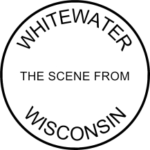 In Wisconsin, UW System schools typically rely on private foundations to offset the costs of some university expenses. This make sense – alumni and other donors can support activities at their schools. What happens, though, when private foundations designed to supplement public programs wind up depending, themselves, on public money?
In Wisconsin, UW System schools typically rely on private foundations to offset the costs of some university expenses. This make sense – alumni and other donors can support activities at their schools. What happens, though, when private foundations designed to supplement public programs wind up depending, themselves, on public money?
One finds that even subsidies, so to speak, have their own subsidies: private organizations that are supposed to be helping the UW System schools by reducing universities’ reliance on tax dollars are, in fact, receiving large sums of public money:
The 112-page audit report estimated $258 million has flowed from UW System schools to private foundations over the last 10 years, and lax record-keeping makes it unclear whether the total was actually higher.
Auditors highlighted blurred lines created when university employees are assigned to work for the foundations without clear guidelines to ensure that the schools are reimbursed and lines of authority remain clear.
…
“The proactive steps we announced last spring are a step in the right direction in providing additional accountability and transparency in the UW System’s relationships with its fundraising and real estate foundations,” [System President Ray] Cross said.
“While we have made significant progress, we appreciate the feedback from LAB [Legislative Accounting Bureau] in assisting us in those efforts,” he said. “We continually strive to ensure the ongoing integrity, efficiency, and transparency of these organizations.”
But the audit report said Cross in April made efforts to tighten financial rules for fewer than one-third of the private foundations. By December, the System was able to show auditors only one contract demonstrating that a school and a foundation were in compliance with new policies.
In December, the UW System Board of Regents formally approved the new policies aimed at ensuring responsible dealings with 28 primary fundraising and real estate foundations.
But Cross and the board didn’t address about 62 other private organizations that were paid an estimated $168 million in 2007 to 2017, auditors said.
Via UW subsidizing private groups that are supposed to subsidize it, audit says.
(What a gift Cross is to contemporary bureaucratic thinking: instead of admitting how far he’s fallen short, he unctuously praises auditors for “the feedback from LAB in assisting us in those efforts” – efforts of course he either didn’t undertake or undertook so poorly millions were not accounted properly.)
Here’s the executive summary of the audit:
UW-Whitewater Foundation (UW-Whitewater)
FY 2007-08 through FY 2016-17
Reported Net Assets: $29.4 million, as of June 30, 2016.
Memorandum of Understanding: In effect in June 2017. Bylaws: In effect from October 2008 through June 2017.
Board of Directors: UW employees served simultaneously as voting members of the foundation’s board. More than three UW employees served on the foundation’s board at some point from FY 2007-08 through FY 2016-17.
Executive Director as of June 30, 2017: The Vice Chancellor for University Advancement at UW-Whitewater also worked as the executive director of the foundation.
Number of UW Employees as of June 30, 2017: The foundation provided reimbursement to UW-Whitewater for some of the salary and fringe benefit costs of two UW-Whitewater employees who worked for the foundation. The foundation did not provide reimbursement for the salary or fringe benefit costs of the UW-Whitewater employee who worked as the executive director.
Approval of Financial Transactions: Two UW-Whitewater employees were authorized to approve financial transactions on behalf of the foundation.
Office Space: The foundation paid an annual fee to use office space at UW-Whitewater. The fee was $2,040 from FY 2007-08 through FY 2015-16. Information indicated this amount was half of the fair-market rate when the original lease for office space was signed in 1992.
New Memorandum of Understanding as of June 7, 2017
The UW System President required UW institutions to comply by November 1, 2017, with written requirements previously provided to all chancellors in April 2017. We requested that UW System Administration provide us with all new memoranda of understanding, which must contain the provisions that are now required by the Board of Regents policy. Most memoranda of understanding referred to related agreements that contained additional information.
Board of Directors: Not all UW employees are prohibited from serving as voting members of the foundation’s board, and the total number of UW employees serving on the board is not limited.
Executive Director: The Vice Chancellor for University Advancement at UW-Whitewater also works as the executive director of the foundation.
Number of UW Employees: Reimbursements for the salary and fringe benefits costs of any UW employees who work for the foundation are required to be documented in a separate agreement. We were not provided such an agreement.
Approval of Financial Transactions: The foundation is required to have policies defining the circumstances in which UW employees may approve transactions on its behalf.
Office Space: The foundation is required to pay an annual fee of $2,040 to use office space at UW-Whitewater. Information indicated this amount is half of the fair-market rate when the original lease for office space was signed in 1992.
